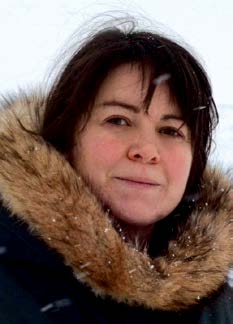Share this page
By Laura Bickle
Photo: Abdullah Kafashe

What does is take to receive the US$1-million Global Teacher Prize (globalteacherprize.org)? The outstanding achievements of the 2017 recipient, Maggie MacDonnell — who for seven years taught in the fly-in Inuit village of Salluit, Que. — point to the level of dedication, empathy and resilience required. During her time there, the award-winning teacher — who grew up in rural Nova Scotia — became an influential member in the Canadian Arctic community that struggles with poverty, domestic violence, mental health issues and suicide. MacDonnell was instrumental in the creation and funding of a student-run school nutrition program, a job placement and mentorship program at a local daycare, as well as the establishment of a community fitness centre that has become a hub for many. She also helped students raise more than $90,000 for diabetes prevention as well as health promotion programs for other Northern youth — accomplishing all of this while acting as a temporary foster parent, with her husband, for several children. In February 2017, she was transferred to Kuujjuaq, Que., 600 kilometres from Salluit, to oversee regional health-based programs for 17 schools in 14 communities. Here, MacDonnell shares what she has learned from receiving this international honour.
What has winning the Global Teacher Prize meant to you?
I thought it would be one day in the media but the organization really sees this as the Nobel Peace Prize for education. It has been transformative for me and my students. I have since travelled with some of them to Montréal, Argentina and Chile, where they met with the president and spoke about their Indigenous experiences, housing, gender roles and education.
I also spoke at the United Nations twice and took students from the region. We had a meeting with former U.S. president Bill Clinton. We’ve had so many amazing leadership opportunities that you just can’t recreate in a classroom.
What will you do with the award?
I plan to establish a non-profit that responds to input from the Indigenous community. We have started a project where we took four Salluit residents to Nova Scotia to work with Canoe Kayak Nova Scotia. The Inuit invented kayaking but their connection to it has weakened due to decades of colonization. Reconnecting helps build resilience and cultural pride.
Describe your teaching approach.
It’s about relationships; that’s where my strength lies. I take a community development approach. It’s important that you engage students in community initiatives, so they see themselves as solutions to the issues around them.
Northern communities tend to see a higher teacher turnover. Why have you decided to stay?
I worked in sub-Saharan Africa for five years, which prepared me for the on-the-ground reality that I would see here. We don’t do enough to prepare teachers for the Indigenous reality. You’re hearing heavy stories and witnessing big stuff — like suicide and self-harm. It’s crucial for teachers to have good self-care strategies to keep mentally healthy and strong.
Why set up a fitness centre?
If we invest in young people and create healthy recreation opportunities, they’ll choose that over drugs and alcohol. The simple act of moving is a way to cope with stress and improve mental health.